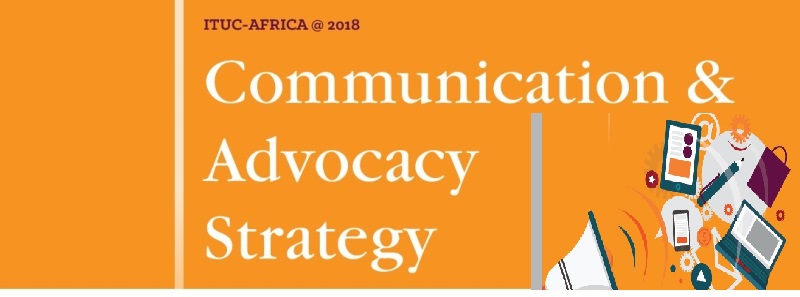
As the world is constantly changing, our work as trade unions has equally evolved over the years. Traditionally, we were primarily the unionised voice and face of workers, advocating for better working conditions and often taking a hard stance against policies perceived to have negative ramifications on our plight. That has been our long held characteristic as trade unions.
However, today as trade unionists we are not just workers. We are participants and key actors in the global economy – we are creators of wealth. We are no longer just interest- ed in better working conditions and engaging with our employers and governments. Because we are cognizant of the fact that there are a lot of variables that have a bearing on our livelihoods in this continuously changing environment, thus we have to adapt or become irrelevant.
We have developed this Communications and Advocacy Strategy (CAS) with the aim of strengthening our engagements as trade unions with the world so that we become effec- tive players in the global economy. This is part of our quest to develop and strengthen the capacity of our trade unions for active engagement in the African development agenda in favour of economic structural transformation, employment creation and equitable economic development at the national, sub-regional and regional levels.
Through this strategy, we will become more effective in communicating our views, posi- tions and critiques to the world. Besides that, this strategy will guide us on how we will engage with a multiplicity of global actors from national governments, bilateral, mul- ti-laterals and multi-national companies within and beyond our respective regions. Through such dialogues, we hope to contribute to a better place for everyone and the posterity.
The CAS will also enable us to communicate more effectively within ourselves as mem- bers of trade unions besides strengthening our networks and partnerships with like-minded institutions across the globe. Thus, this strategy has identified our target groups, divided as primary and secondary boundaries: those we will seek to support us in our mission and those that we will hope to influence through campaigns, conferenc- es, research publications, media statements and other forms of communications.
However for us to be effective, we have to be focused. To ensure that we have a shared cause within our trade union fraternity, we have identified areas where we would like to invest our energies.
EXECUTIVE SUMMARY

